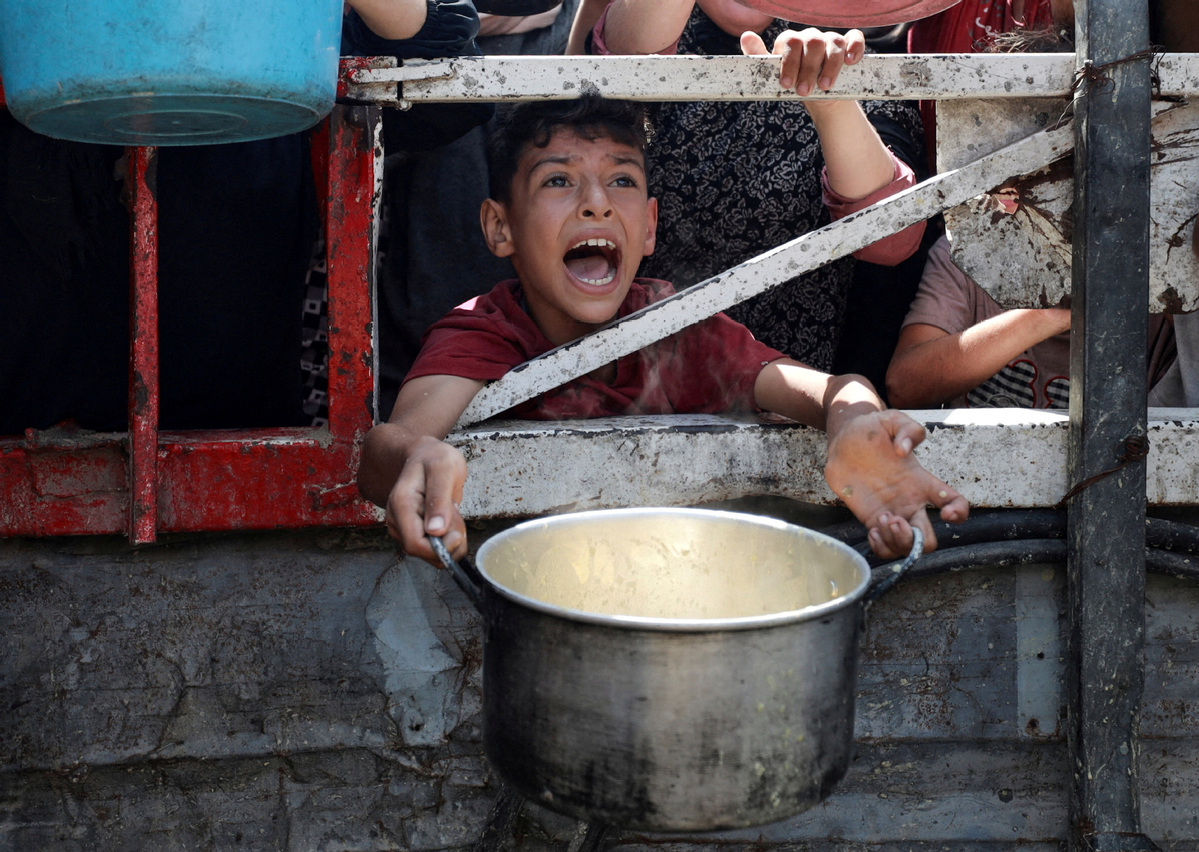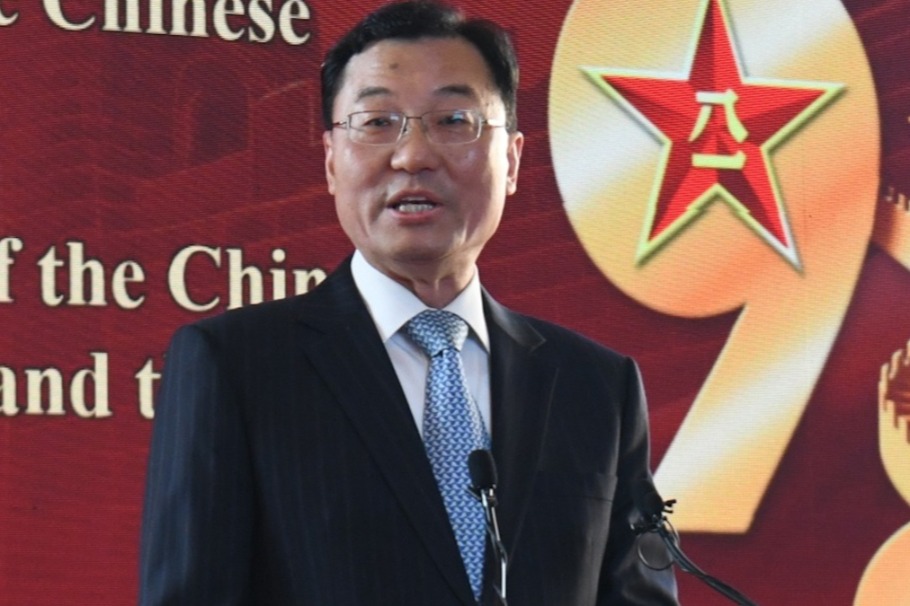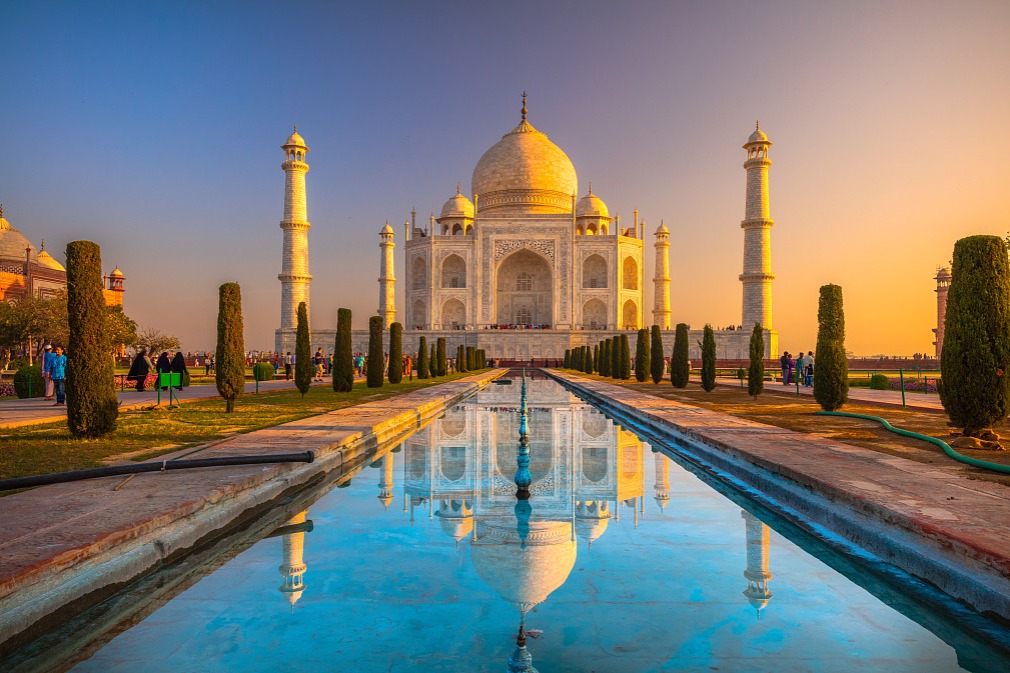UN meeting stresses peace for Gaza


France and Saudi Arabia lead the charge starting on Monday to revive the push for a two-state solution for Palestinians at a UN conference in New York.
It was widely reported that the US and Israel would boycott the meeting from Monday to Wednesday.
The meeting was supposed to take place in June but was postponed after Israel and the United States attacked Iran, unleashing a 12-day conflict.
Last week, French President Emmanuel Macron announced that France would recognize the State of Palestine in September and was rallying other countries to follow suit.
Palestinian President Mahmoud Abbas had earlier welcomed Macron's announcement, saying the move was "a victory for the Palestinian cause".
Jasim Husain, a Gulf analyst and former member of Bahrain's Parliament, told China Daily that what Saudi Arabia and France were doing together is "a historic moment" as "it's a very big step by France, and a strong determination by Saudi Arabia".
The Saudi assurance was published in a statement by Saudi Foreign Minister Prince Faisal Bin Farhan on Sunday, ahead of the highly anticipated conference. Saudi Arabia has also previously linked normalization of relations with Israel to the establishment of a Palestinian state.
The foreign minister emphasized that Saudi Arabia continues to "exert every effort to establish a just and lasting peace in the Middle East".
"It is something marvelous, really, putting pressure now on other EU countries plus the UK, Canada, Australia, certainly making the Israelis not happy and also the Americans," Husain, from Bahrain, told China Daily.
But he also noted "some very strange" incidents in the run-up to the conference.
"Suddenly, the US walked out of the (Doha, Qatar) talks with Hamas, accusing Hamas of not being cooperative. There are also now talks of maybe using extraordinary pressure on Hamas — something the US used in wars, in World War II, so (it's) a maximum pressure on Hamas, possibly to even wipe out Hamas," said Husain.
After cutting short ceasefire negotiations last week and blaming Hamas for its lack of sincerity in achieving a ceasefire deal, Israel announced it was allowing more aid in.
The Israel Defense Forces on Sunday announced "a tactical pause in military activity" to increase the scale of humanitarian aid entering Gaza amid international pressure to end the hunger crisis in Gaza.
On Monday, Israel reported that more than 120 truckloads of food aid were distributed by the UN and aid agencies in the Gaza Strip on the first day of a partial pause in the fighting.
Gokhan Batu, an analyst on Israel studies at the Center for Middle Eastern Studies in Turkiye, told China Daily that Israel's decision to ease the passage of aid into Gaza "appears to be driven by mounting international pressure and the further deterioration of its global image".
"The humanitarian crisis in Gaza has reached a point where the costs of restricting aid have clearly outweighed any perceived strategic gains. In this context, the decision seems to be a calculated, strategic move," said Batu.
He also noted that the 28 countries that issued a joint call for an end to Israel's military campaign in Gaza on July 21 signaled a "growing frustration among governments that are also facing public protests in their own capitals".
Agencies contributed to this story.
































